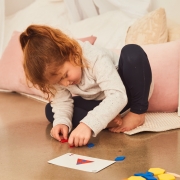Supporting Children’s Emotional Development in an Early Years Setting
Written by Dr Sarah Mundy, Consultant Clinical Psychologist (BSc., MSc., PDClin) Author
It’s not just time, but the right sort of care that enables children to understand and manage emotions.
Working within Early Years is a hugely important job – you are supporting children when they are learning more than they ever will. In fact, the first 1000 days will determine the quality of the next 32,000!
Despite this, practitioners are often in settings which are busy, stressful and sometimes understaffed. It’s not like they can get in, have a cup of tea, turn their computer on and make a to-do list for the day. They’re straight in there helping children separate from their parents, supporting friendships and trying to make sure they are following the new EYFS curriculum. On top of that, Early Years settings are places in which feelings are rife – and frequently expressed very loudly!
This article focuses on why young children show such big feelings that they find hard to manage and what you can do to support their emotional development.
Why do little ones have such big feelings?
Babies and young children do not have the brain power to understand and cope with their feelings on their own.
Babies are born with practically no ability to manage their feelings. This is because they are born relying on the bottom part of their brain. This is the most primitive part of our brains which controls bodily functions and responds to danger. This means they don’t have the tools to make sense of their environment and can only show basic responses like crying to express discomfort and thereby get their needs met. As babies are only responding to their environment, without the ability to make sense of it, it’s not surprising that they are often overwhelmed and confused by their feelings.
When we are little, our brains are like sponges, working hard to sort out the bombardment of information that they are receiving. Although a two-year-olds brain has twice as many connections than an adults’ brain, they need support to connect these brain cells together in a way that helps them learn how to cope with the world.
A carers response is key to shaping brain development. The more children experience consistent and responsive caregiving, the more they develop healthy connections to the higher, thinking and reasoning parts of the brain. The more they can draw on the higher parts of the brain the better they are at managing our feelings. This is the essence of emotional development.
What is Emotional Co-regulation?
Babies from as young as 4 weeks can be soothed before being picked up simply by seeing a caregiver (Lamb and Malkin, 1986)
To develop the ability to understand and manage what they are feeling children need an adult to do this for them. This happens through a process called co-regulation.
When babies are showing distress, they need help to calm down. With a better understanding of brain development, the idea that picking up crying babies leads to them being spoiled has been quashed. They aren’t old enough to known that they are feeling fear, hunger, or sadness, let alone manage it. In fact, babies that are picked up and supported from early on learn to do it for themselves more quickly than those who aren’t.
Initially, we borrow emotional regulation skills from our caregivers. For example, a baby feels a sensation and they react to how it makes them feel. They signal (often through crying) to their caregiver that something is the matter and the adult steps in to help them with this. If they are hungry this may be about feeding them but also helping them to feel calmer through non-verbal communication. Through these sorts of interactions (repeated over and over and over again!) babies start to internalise the reassurance and coping skills that their carers show them.
Think of co-regulation as an adults’ mind acting as a mirror to the baby’s own mind, teaching the infant what their internal world looks like, what it means, and how to make sense of it and cope with it.
How to co-regulate
Whilst co-regulation sounds quite simple, it isn’t always easy to do, particularly when being pulled in so many different directions. But there are some simple steps to supporting children with their feelings through co-regulation, as described below:
- Notice what is going on and make the link between what the child is showing you what it might mean. We sometimes have to work through different possibilities to help calm babies before finding the right solution – it could be a nappy change, feed, nap, stimulation, hunger, frustration etc). Our job is to try to make sense of it for them and fix it. Initially this may take a while but as we get to know individual children it’s easier to pick up on their cues.
- Keep in control of your own emotions – this helps children feel supported and understood (even if what they are showing you is really frustrating!)
- Label their feelings (e.g. “you look sad”) and reflect them back to them (e.g. through showing a sad face)
- Empathise with what they are feeling and let them know it’s OK.
- Soothe them (through cuddles, eye-contact and tone of voice)
- If they are old enough talk to them later about what happened (e.g., “you got really angry earlier, I wonder if that is because Tommy took your toy?”). This helps them connect their feelings and behaviours.
The more we co-regulate children’s feelings the quicker they will learn to cope with them on their own. This is known as self-regulation which is one of the key goals in the new EYFS. But don’t expect this to happen overnight or be possible all of the time – even us adults can’t always manage our feelings without help, particularly when life feels stressful.
What else can you do?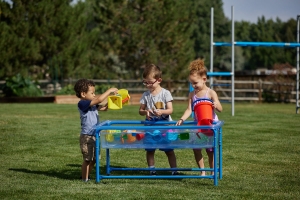
“Children’s emotions are just as real as yours. Just because they might get sad over the colour of their cup, does not make their feelings any less real” (Rebekah Lipp)
Whilst co-regulation is the key to supporting babies and children’s emotional development, there are a number of other things you can do in your setting to support children in this area. This includes active listening, using open-ended questions, using emotional vocabulary regularly, staying with, rather than dismissing feelings, using play and stories to help children understand emotional worlds and including some mindfulness, relaxation and yoga.
It’s also very important that the environment is enabling – with opportunities to get outside, with staff morale being good (babies’ and young children pick up on others’ emotions more than we realise) and with there being child-led routines which are flexible but predictable.
The Expectation Gap
Expecting a 2-year-old to calm down on their own, mid-meltdown and reflect upon what they have done is equivalent to asking them to fly a rocket!
Some of you may have heard of the expectation gap. This is when caregivers believe that children have the ability to master self-control when they are not yet able. We can sometimes forget that children need a lot of support in managing their emotions and that they can’t do this on their own until they have the right support to do so. We often focus on their behavioural and physical worlds and forget to attend enough to their feelings.
Once a child has mastered a skill it can be frustrating when they seem not to be able to do it anymore. We need to remember that, like us, children can find it harder to manage their feelings at certain times and not expect emotional development to be a smooth process where, when you acquire a skill, you can always put it into practice.
We also need to remember is that little ones do not understand others’ feelings (the development of a “theory of mind”, when you understand that others have a mind separate to you, happens around the age of 3). Their behaviour is not designed intentionally to frustrate but a communication of how they are feeling or showing their curiosity about the world.
Historically, Early Years settings have taken a behavioural approach, whereby a child is given a negative consequence for an unwanted behaviour (such as time out). Given what we now know about emotional development it’s important that children are not punished for struggling to control their feelings (which is normally what leads to unwanted behaviours). They simply don’t have the brain power to do so yet. Instead, we need to co-regulate and help them learn how to cope in the future. We need to focus on what is behind a behaviour rather than the behaviour itself.
Children learn through their relationship with you, not on their own, and it is your role to step back, ask if you are expecting too much of them and, if so, step in to help.
A final thought
I also wonder if there’s an expectation gap that we put onto early years practitioners. It’s a hugely responsible job and we expect a lot of staff who have to support little ones with these big feelings all day. Feelings are contagious – we pick them up through mirror neurons (specialised brain cells that help us understand the meaning of other people’s feelings). Whilst this is an amazingly clever thing, it also means that we actually feel what others are feeling. It’s understandable that practitioners can feel overwhelmed too.
So, I’d like to end with thanking all of those working in the Early Years for the wonderful support you provide to the babies and children you work with. By providing co-regulation (amongst all the other things you do) you are setting children up for success.
Written by Dr Sarah Mundy
Dr Sarah Mundy is a Consultant Clinical Psychologist (BSc., MSc., PDClin) and author of Parenting Through Stories. She has worked with children and families for 20 years. Has specialised in helping parents connect with their children and support them with their emotional wellbeing, particularly those who have been through early adversity.
In addition to continuing to practice as a psychologist, Sarah has written a series of interactive stories (Bartley’s Books) for young children as well as an accompanying Parenting Handbook. Parenting Through Stories aims to help parents find ways to talk to their children about tricky experiences. The handbook provides parents with advice on how to best support their children’s emotional and behavioural development and feel more connected with them (see www.parentingthroughstories.com for more information). Sarah also writes articles for various publications and has the occasional appearance on BBC television on radio. She lives in beautiful Cornwall with her three children and partner.
Her books are available through Amazon (UK only) or Shopify (international). You can also access free resources and parenting advice through;
– www.parentingthroughstories.com)
– Instagram (@parenting_through_stories)
– Facebook (@parentingthroughstories)
– Twitter (@bartley_bear).

Further Reading
If you have found this article useful and are interested in finding out more do have a look at the following books;
Mona Dela Hooke – Beyond Behaviours and Brain Body Parenting
Kate Silverton – There’s No Such Thing as Naughty
Tina Payne-Bryson and Dan Siegel – The Whole Brain Child, No Drama Discipline, The Power of Showing Up
Mine Conkbayir – Early Childhood and Neuroscience
Debbie Garvey – Nurturing Personal Social and Emotional Development in Early Childhood
Sue Cowley – Learning Behaviours.

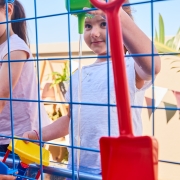
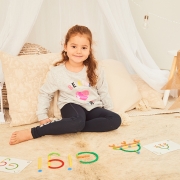 Edx Education
Edx Education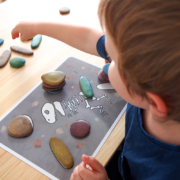 edx education
edx education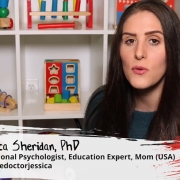 Edx Education
Edx Education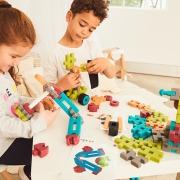 Edx Education
Edx Education
